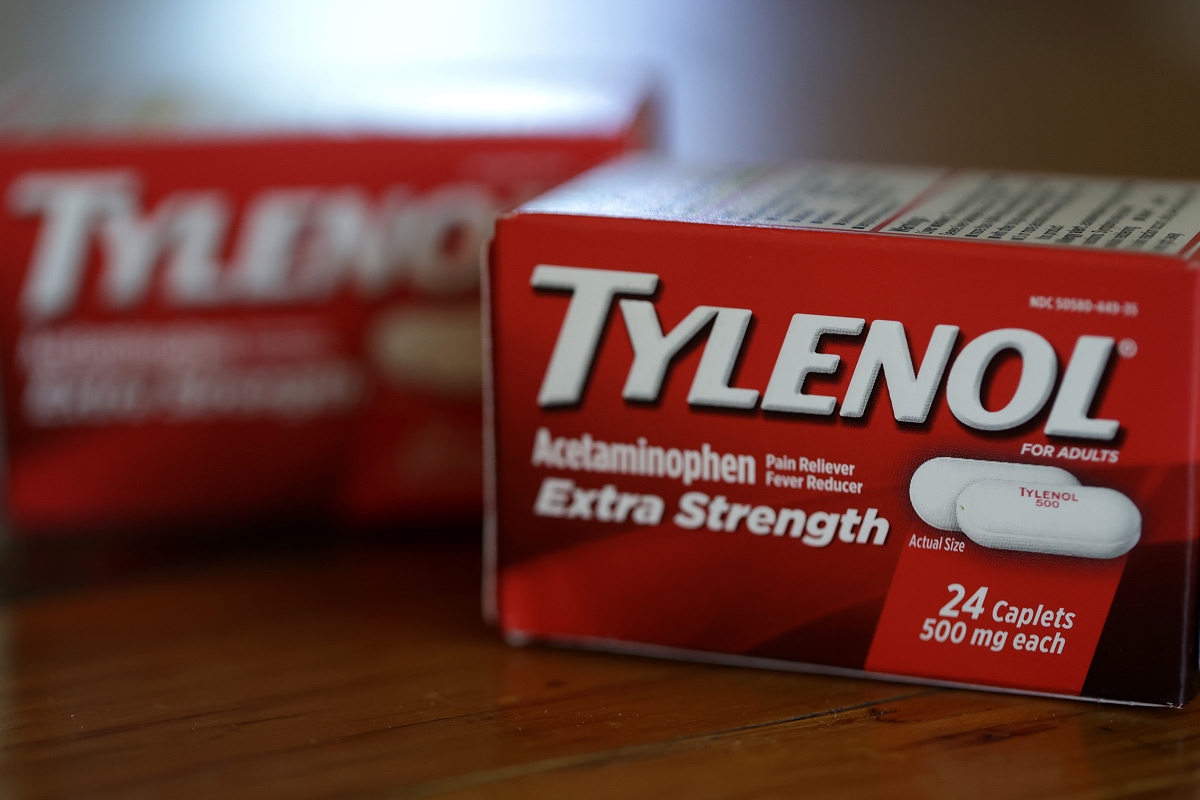Key Takeaways
- Tylenol is effective for pain relief but can be dangerous for those with liver damage or substance abuse history.
- People recovering from alcohol or drug addiction should use all pain medications under medical supervision.
- 12 South Recovery provides personalized treatment to support safe recovery and overall wellness.
Safe or Risky? The Truth About Tylenol in Recovery
For many people, Tylenol (acetaminophen) is a go-to medication for pain and fever. But for those with a history of substance abuse, it may not be as harmless as it seems. Tylenol is processed through the liver, an organ often strained by past drug or alcohol use. Taking too much can increase the risk of liver damage and other health issues. Some people in recovery may also wonder if safer options like ibuprofen are better for them. At 12 South Recovery, we help individuals make safe, informed choices while managing pain during addiction recovery.

What Is Tylenol and How Does It Work in the Body
Tylenol works by blocking pain signals in the brain and reducing fever. It doesn’t act on the same receptors as opioids, which means it doesn’t produce euphoria or carry a high risk of physical dependence. This makes it a preferred pain relief option for many people.
However, acetaminophen is processed through the liver. When taken in large doses, or when combined with alcohol or other drugs, it can cause liver damage. People with a history of alcohol use or prescription drug misuse may already have weakened liver function, increasing the risk of toxicity.
Even small increases beyond the recommended daily limit can lead to harm. For those in recovery, safe dosing and medical oversight are key to preventing complications.
Can a Recovering Addict Take Pain Medication
People in recovery often face legitimate pain, whether from surgery, injury, or chronic conditions. But taking pain medication can be a difficult decision. The fear of relapse, dependency, or interaction with past substances can make even safe medications feel risky.
Doctors may recommend non-opioid options like Tylenol because it provides relief without triggering addictive brain pathways. Still, it’s essential for recovering individuals to consult a healthcare provider before taking any medication, including over-the-counter drugs.
At 12 South Recovery, we encourage clients to discuss all medications with their medical and therapeutic team. Open communication helps protect recovery while ensuring pain is properly managed.
Tylenol and Alcohol Addiction: How the Combination Impacts the Liver
Mixing Tylenol with alcohol is extremely dangerous. Both substances are metabolized through the liver, and together, they can cause severe or even irreversible liver damage.
For people recovering from alcohol addiction, the liver is often already under stress from past substance use. Adding acetaminophen to the mix, even at normal doses, can increase the risk of liver inflammation or failure.
Warning signs of liver strain include:
- Nausea or vomiting
- Abdominal pain
- Fatigue or weakness
- Yellowing of the skin or eyes (jaundice)
If these symptoms appear, immediate medical care is needed. People in alcohol recovery should always talk to their doctor before using OTC pain relief to avoid accidental harm.
Is Tylenol or Ibuprofen Better for Alcoholics
Both Tylenol and ibuprofen can relieve pain, but their effects on the body differ.
| Feature | Acetaminophen (Tylenol) | Ibuprofen |
| Main Use | Reduces pain and fever | Reduces pain, inflammation, and fever |
| Processed By | Liver | Kidneys |
| Liver Risk | High, especially with alcohol use | Lower, but may affect kidneys |
| Common Side Effects | Nausea, liver strain | Stomach irritation, ulcers |
| Addiction Potential | None | None |
| Recommended For | Mild pain or fever relief | Pain with inflammation (like muscle aches or arthritis) |
For people with a history of alcohol use, ibuprofen may pose less risk to the liver but can irritate the stomach and kidneys if overused. Always consult a doctor before using either, especially if you’re in recovery.
Can People in Recovery From Drug Addiction Take Tylenol Safely
Yes, but it depends on the person’s health history and current recovery stage. People recovering from drug addiction, particularly opioid or prescription painkiller misuse, often have heightened sensitivity to medications that alter mood or cause sedation.
Tylenol does not produce these effects, which makes it a safer pain relief choice. However, combining it with other substances or exceeding the daily limit (usually 3,000 to 4,000 mg) can cause liver toxicity.
If chronic pain persists, medical professionals can recommend safer long-term management options that don’t interfere with recovery. At 12 South Recovery, clients work closely with clinicians who understand the delicate balance between managing pain and maintaining sobriety.
Why the Liver Is at Higher Risk After Substance Abuse
Substance abuse, especially involving alcohol or prescription drugs, puts immense pressure on the liver. This organ filters toxins from the bloodstream, including medications like acetaminophen.
Over time, consistent exposure to drugs or alcohol causes liver cells to scar and weaken. When the liver is damaged, it cannot process medications efficiently. This makes even normal doses of Tylenol more dangerous for people in recovery.
For anyone with a history of substance abuse, liver function tests can help determine whether acetaminophen is a safe option for pain relief.
Tylenol Use in People With Dual Diagnosis Conditions
A dual diagnosis means a person is living with both a mental health disorder and a substance use disorder. Managing physical pain in this group requires extra care, as some medications may interact with antidepressants, mood stabilizers, or anti-anxiety medications.
Tylenol is often viewed as a safer alternative because it doesn’t affect mood or behavior. However, liver safety remains a concern. Clients with co-occurring conditions should only take Tylenol under supervision from a healthcare provider familiar with both their physical and mental health.
At 12 South Recovery, dual diagnosis treatment focuses on addressing mental health and substance use together, creating balance across all aspects of wellness.
Safer Pain Relief Alternatives for People in Recovery
While Tylenol can be used carefully, there are other ways to manage pain that carry less risk. These include:
- Ibuprofen or naproxen, taken as directed for short-term use
- Physical therapy for muscle or joint pain
- Mindfulness and relaxation techniques for stress-related pain
- Holistic treatments, including yoga or acupuncture
- Individual and group therapy, to address emotional pain linked to recovery
Pain management should always consider both physical and emotional well-being. At 12 South Recovery, clients explore safe, non-addictive methods that support healing without compromising recovery.
Addiction Treatment at 12 South Recovery
At 12 South Recovery, our mission is to help individuals overcome substance abuse and build a healthy, purpose-driven life. We provide several levels of care to meet each client’s needs.
Programs Include:
- Detox: Safe, medically supervised withdrawal management
- Residential Treatment: 24/7 care in a supportive environment
- PHP (Partial Hospitalization Program): Structured daytime treatment
- IOP (Intensive Outpatient Program): Flexible therapy for ongoing recovery
- Continuing Care: Ongoing support after treatment ends
- Alumni Program: Long-term connection and relapse prevention support
Therapies We Offer:
- Cognitive Behavioral Therapy (CBT)
- Dialectical Behavior Therapy (DBT)
- Eye Movement Desensitization and Reprocessing (EMDR)
- Holistic Therapy for overall wellness
- Adventure Therapy to build confidence and resilience
Whether you’re recovering from drug addiction, alcohol addiction, or managing a dual diagnosis, 12 South Recovery provides expert care and genuine support at every stage of your healing process.
Get Addiction Treatment Help at 12 South Recovery
People with a history of substance abuse should be cautious when using Tylenol, as it can strain the liver and increase health risks. Even small amounts can be harmful if the liver is already weakened from past substance use. Safe pain management should always be discussed with a medical professional. 12 South Recovery in Lake Forest, California, helps individuals protect their health while working toward lasting recovery. Call 12 South Recovery Today!































